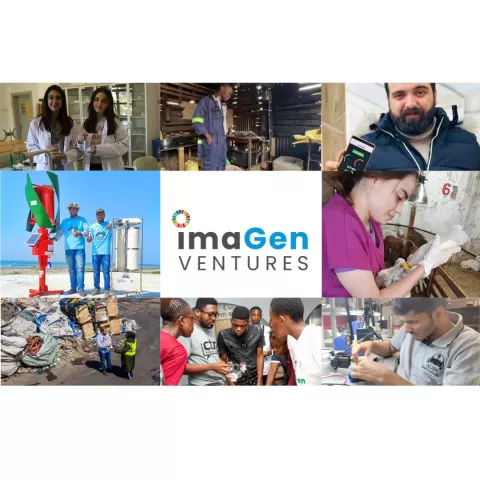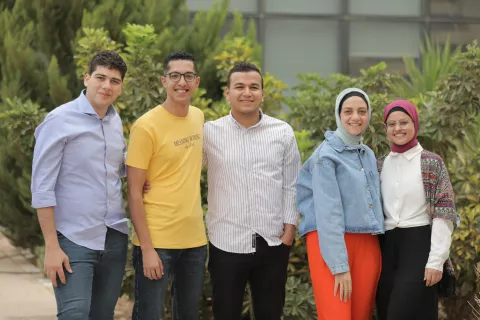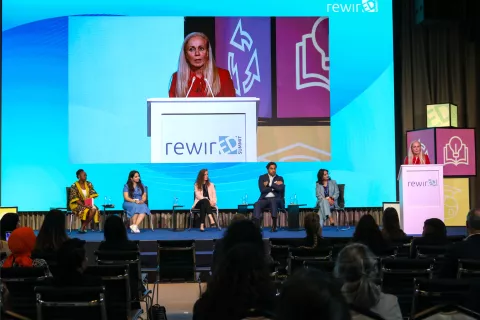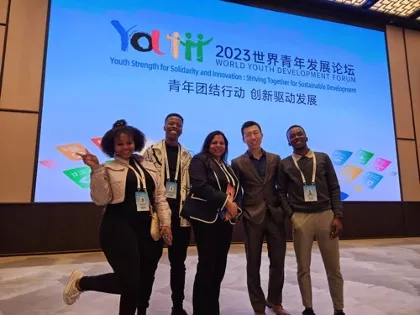Online Studies, a Blessing or a Curse!
This article is part of Youth Series, an initiative led by GenU and PwC to amplify the reflections of young people about the digital divide

Globally 1.5 billion students have been affected by Covid-19 due to the closure of schools. In Ghana 9.2 million basic school students have been affected (kindergarten, primary and junior) and 0.5 million tertiary students according to UNESCO.
The onset of Covid-19 also known as the global pandemic has had impeccable effects on the world. From employment to education, health, agriculture and just to mention a few have had a share of their effects. Some of the sectors that have been severely stricken worldwide are education and employment.
The pandemic has changed the face of education by introducing "school at home" where students learn online. For some, they resort to television and radio to catch up with studies. This novelty is considered digital learning or virtual learning.
This virtual learning is enhanced through utilizing computers and/or the internet both outside and inside the facilities of the educational organization. In instances where students are not able to have access to any of these mediums for learning, what is the alternative? Whereas some parents have employed the services of teachers to help their wards, other children are left to wander without any means to learn.
For people like myself who had the chance to continue my studies online, I was posed with an array of problems such as, bad connectivity, expensive data packages, unstable power supply, and even the needed materials to access these learning sites.
In Ghana, when schools were closed, and it was announced that students will be studying online, a lot of students through the Representative councils raised concerns about the connectivity to these online sites. Students demanded that schools provide a data bundle that will help in accessing these sites. While some schools heeded their call by providing the data, other schools with the authorities paid a deaf ear to their demand leaving students to their own fate.
I remember having to wake up sometimes as early as 1-3 AM dawn just to submit my exams due to poor network and unstable school portals. Some of my colleagues even missed out on submission dates because of the poor internet and had to suffer for something which was no fault of theirs. The shift to digital learning without the requisite resources gives me a nightmare when I recall my challenges. I will still suffer the same fate due to knowing that we will be subsequent online interactions and less offline interactions.
The main aim of the Sustainable development goals underscores on leaving none behind. This goal can be undermined by the abrupt use of online learning space that countless number of people are not having access to.
In a time of crisis and uncertainty like the present, digital learning has come to stay. As a matter of urgency, young people need digital skills to embrace this digital world.
There should be an investment in digital skills development for all young people which is inclusive enough and targeted. The use of digital technologies for education and skills development needs to be strengthened to provide a comprehensive approach towards the empowerment of all young people. Teachers, tutors, and lecturers need to be motivated and empowered with digital skills.
To conclude, young people need to make efforts in developing and building on their digital skills during this era. We the young people have to also build soft skills which will also help us get quality education and employment. Young people in entrepreneurship also needs to build on their skills to scale up their work. Above it all, discipline is required of us as young people in all spheres to be productive during these times as things become more and more challenging.
We all have a role to play in recovering all lost efforts and each one involved has to play their role well.
Learn more about Victoria Quaynor
See how Generation Unlimited, PwC, and UNICEF are addressing the digital divide in the following report.
The statements in this publication are the views of the author(s) and do not necessarily reflect the policies or the views of UNICEF and PwC.




